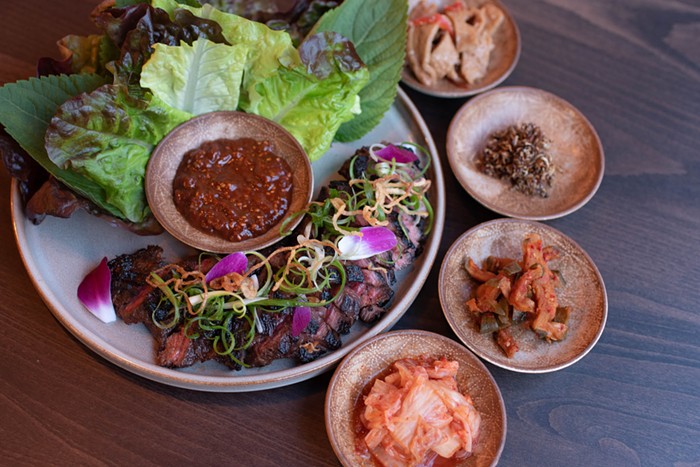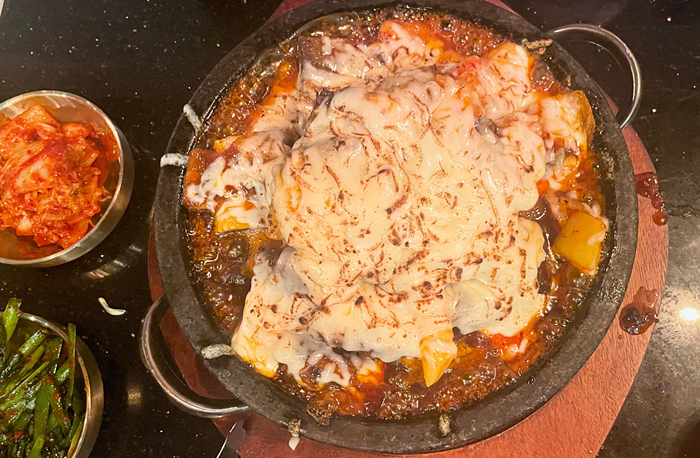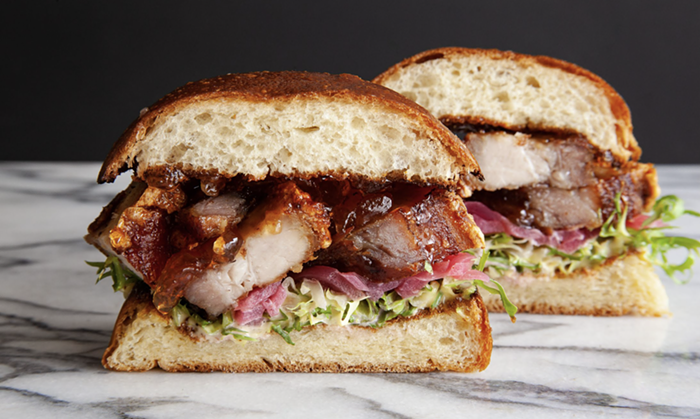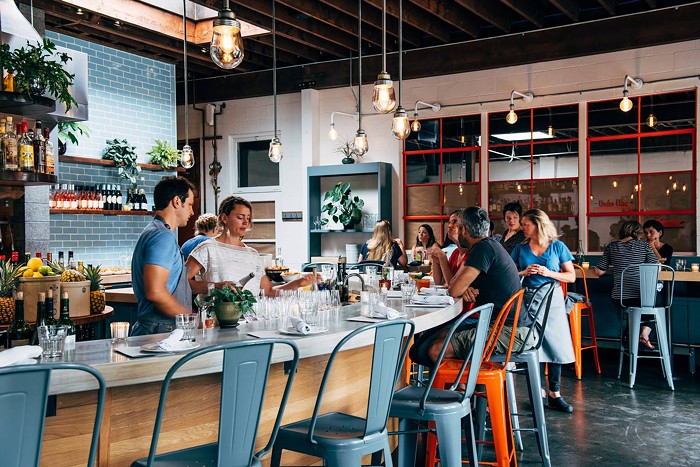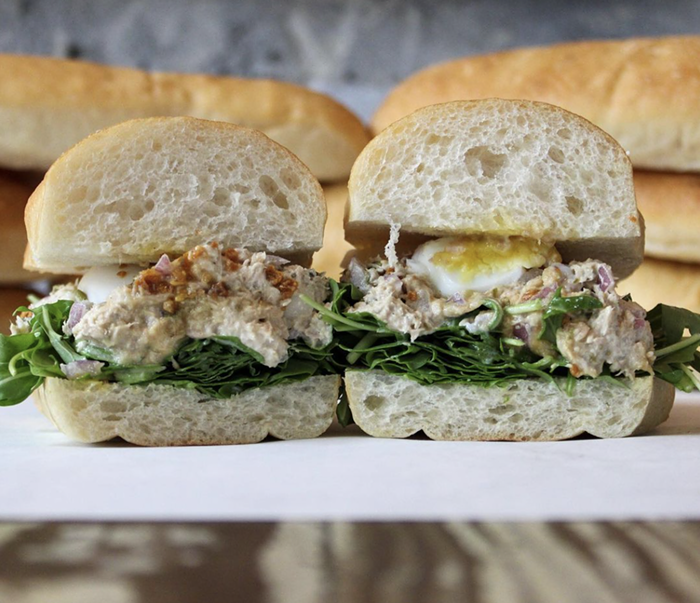Johnnie Stroud spent seven years in Japan, five of them drunk, three of them hungover. He attributes the hungover years to bad sake, and he has devoted his life to helping others avoid this fate. Bad sake is made with rice that's not been milled enough, with extra sugar and other additives; good sake is high-grade, pure happiness with names like Moon Princess, Dance of the Flowers, Into Your Soul, Drunken Heart, Nothingness. Johnnie Stroud and his partner, Taiko Stroud (who also happens to be his bride), do not deal in bad sake. Their stock-in-trade at Saké Nomi is of the pure happiness variety.
On a half-moon of a table by Saké Nomi's front window stand 57 empty sake bottles, evidence of the work of selecting Saké Nomi's inventory. The place is part shop, part bar, part empty expanse of shined, worn hardwood floor. Sake labels with brushstroked faces of drunk-looking tigers are adhered to the walls. Exposed wooden joists create the effect of a bunker or a speakeasy, a place where everyone's in it together and those left out are to be pitied. The Pioneer Square location is obscure, and Saké Nomi closes early, evading the neighborhood's eveningtime epidemic of alcohol-fueled moronism. Still, in Japanese, "nomi" means "only" and is also close to the verb "to drink"; "sake nomi" means (to be genteel) "drinking enthusiast." Should a drinking enthusiast at Saké Nomi briefly succumb to gravity's pull, leaving a barstool behind, everyone's supportive—a certain "unevenness in the floor" is to blame.
Johnnie writes the tasting notes for the weekly sake selections. The level of detail seems funny— "Wonderfully settled and calm, melting and smooth"—until you start drinking; then it still seems funny, but also eminently sensible. Taiko inks the placemats for the tastings, swirling targets for where the cups go, lines leading to places of origin on a rough-drawn map of Japan. Both the Strouds pour free samples and bring paper cups full of wasabi peas, rice crackers, and chocolate candies. Taiko brings around sparkling sake, a development that's only a few years old, soon to be popular: It's crisp, slightly sweet, wants to be drunk by the oceanful.
Containers of rice milled and milled some more for junmai, ginjo, and daiginjo sake sit on the bar, ever-smaller near-translucent pearls. The silent television shows very serious men in suits, sipping, describing slowly via caption: "How can I say this... like ripe strawberries... just when the flavor peaks. That's what it's like." ![]()
